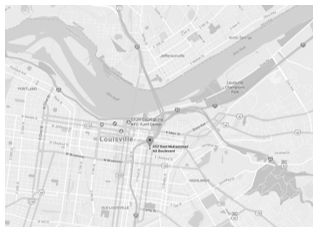UofL’s online program, distance education prepares more baccalaureate nurses
LOUISVILLE, Ky. - Preparing for future changes in managed health care and learning about advances in medicine are among the reasons Maysville, Ky., registered nurse Belita Adams decided to go back to school to earn a baccalaureate degree.
Although she and her husband spent many years in their Native American communities located in the western United States and Canada, they chose to raise their children in rural Kentucky. Adams earned an associate’s degree in nursing seven years ago, and said the University of Louisville School of Nursing’s RN to BSN online program has made it possible to earn a bachelor’s degree without relocating.
“I am extremely pleased with my courses and the professionalism of my instructors. The program is organized and user friendly,” Adams said.
This is one of two technology-based programs the UofL School of Nursing has begun to increase the number of baccalaureate-prepared nurses in the state; the other program is the BSN extension in Owensboro, Ky. It combines distance classroom education and on-site clinical instruction.
In the article “Enhancing the State’s BSN Workforce With the Right Partner and the Best Technology” that published in the April, May, June 2013 issue of Kentucky Nurse, UofL School of Nursing Dean Marcia Hern, EdD, CNS, RN, and several Owensboro nursing professionals explain the importance of these programs.
“The Institute of Medicine’s (IOM) landmark report, The Future of Nursing: Leading Change, Advancing Health, has made the poignant recommendation for academic leaders to increase the proportion of nurses with baccalaureate degrees from 50 percent to 80 percent by 2020,” Hern said. “Less than one-third of Kentucky’s nursing workforce holds a bachelor’s of science in nursing; the state has a significant challenge ahead to reach the IOM goal. One driver for the IOM recommendation is to improve overall quality of patient care and patient outcomes.”
Hern said technology has proven effective in addressing the nursing faculty shortage, one reason more qualified students are not admitted to nursing schools. She said success of the program in Owensboro is a result of collaboration and pursuit of common goals with the Ownesboro Medical Health System (OMHS).
UofL’s efforts are making a contribution in achieving the IOM’s 2020 goal, according to Hern.
Of the more than 100 students enrolled in the RN-BSN program, nearly 90 percent live in Kentucky. In addition, by graduation day on May11, almost 50 students will have earned a BSN degree through the Owensboro extension program – an academic endeavor that began just three years ago.
